ctype.hをインクルードすることで、文字を識別する関数群と大文字⇔小文字に変換する関数が使用可能になります。
関数
int isalnum(int c)
引数が英数字(’A’~’Z’、’a’~’z’、’0’~’9’)の場合に真、それ以外の場合に偽を返します。
使用例:
#include <ctype.h>
#include <stdio.h>
int c = 0;
void Func(int c)
{
if(isalnum(c)){
printf("英数字です。\n");
}else{
printf("英数字ではありません。\n");
}
}
int main(void)
{
Func('A');
Func('z');
Func('0');
Func('+');
return 0;
}実行結果:
| 英数字です。 英数字です。 英数字です。 英数字ではありません。 |
int isalpha(int c)
引数がアルファベット(’A’~’Z’、’a’~’z’)の場合に真、それ以外の場合に偽を返します。
使用例:
#include <ctype.h>
#include <stdio.h>
int c = 0;
void Func(int c)
{
if(isalpha(c)){
printf("アルファベットです。\n");
}else{
printf("アルファベットではありません。\n");
}
}
int main(void)
{
Func('A');
Func('z');
Func('0');
Func('+');
return 0;
}実行結果:
| アルファベットです。 アルファベットです。 アルファベットではありません。 アルファベットではありません。 |
int isblank(int c)
引数が標準ブランク文字(半角スペース(’ ‘)または水平タブ(’\t’))の場合に真、それ以外の場合に偽を返します。
使用例:
#include <ctype.h>
#include <stdio.h>
int c = 0;
void Func(int c)
{
if (isblank(c)) {
printf("標準ブランク文字です。\n");
}else{
printf("標準ブランク文字ではありません。\n");
}
}
int main(void)
{
Func('A');
Func('0');
Func('+');
Func('\n');
Func(' ');
Func('\t');
return 0;
}実行結果:
| 標準ブランク文字ではありません。 標準ブランク文字ではありません。 標準ブランク文字ではありません。 標準ブランク文字ではありません。 標準ブランク文字です。 標準ブランク文字です。 |
int iscntrl(int c)
引数が制御文字(0x00~0x1F、0x7F)の場合に真、それ以外の場合に偽を返します。制御文字はタブや改行などが該当します。
使用例:
#include <ctype.h>
#include <stdio.h>
int c = 0;
void Func(int c)
{
if (iscntrl(c)) {
printf("制御文字です。\n");
}else{
printf("制御文字ではありません。\n");
}
}
int main(void)
{
Func('A');
Func('0');
Func('+');
Func('\n');
Func('\t');
return 0;
}実行結果:
| 制御文字ではありません。 制御文字ではありません。 制御文字ではありません。 制御文字です。 制御文字です。 |
int isdigit(int c)
引数が数字(’0’~’9’)の場合に真、それ以外の場合に偽を返します。
使用例:
#include <ctype.h>
#include <stdio.h>
int c = 0;
void Func(int c)
{
if (isdigit(c)) {
printf("数字です。\n");
}else{
printf("数字ではありません。\n");
}
}
int main(void)
{
Func('A');
Func('0');
Func('9');
Func('+');
Func('\n');
return 0;
}実行結果:
| 数字ではありません。 数字です。 数字です。 数字ではありません。 数字ではありません。 |
int isgraph(int c)
引数が半角スペース(’ ‘)を除く表示可能な文字の場合に真、それ以外の場合に偽を返します。
使用例:
#include <stdio.h>
#include <ctype.h>
int main(void)
{
char chars[] = {'A', ' ', '1', '#', '\t', '\n', '\0'};
for(int i=0; i<sizeof(chars)/sizeof(chars[0]); i++){
printf("'%c'はスペースを除いたprint可能な文字ですか? %s\n",
chars[i], isgraph(chars[i]) ? "Yes" : "No");
}
return 0;
}
実行結果:
| ‘A’はスペースを除いたprint可能な文字ですか? Yes ‘ ‘はスペースを除いたprint可能な文字ですか? No ‘1’はスペースを除いたprint可能な文字ですか? Yes ‘#’はスペースを除いたprint可能な文字ですか? Yes ‘ ‘はスペースを除いたprint可能な文字ですか? No ‘ ‘はスペースを除いたprint可能な文字ですか? No ”はスペースを除いたprint可能な文字ですか? No |
int islower(int c)
引数が小文字のアルファベット(’a’~’z’)の場合に真、それ以外の場合に偽を返します。
使用例:
#include <stdio.h>
#include <ctype.h>
int main(void)
{
char chars[] = {'A', 'a', '1', '#', ' ', 'z', 'Z', '\n', '\t', '\0'};
for(int i=0; i<sizeof(chars)/sizeof(chars[0]); i++){
printf("'%c'は小文字か? %s\n",
chars[i], islower(chars[i]) ? "Yes" : "No");
}
return 0;
}
実行結果:
| ‘A’は小文字か? No ‘a’は小文字か? Yes ‘1’は小文字か? No ‘#’は小文字か? No ‘ ‘は小文字か? No ‘z’は小文字か? Yes ‘Z’は小文字か? No ‘ ‘は小文字か? No ‘ ‘は小文字か? No ”は小文字か? No |
int isprint(int c)
引数が表示可能な文字の場合に真、それ以外の場合に偽を返します。
使用例:
#include <stdio.h>
#include <ctype.h>
int main(void)
{
char chars[] = {'A', 'a', '1', '#', ' ', 'z', 'Z', '\n', '\t', '\0'};
for(int i=0; i<sizeof(chars)/sizeof(chars[0]); i++){
printf("'%c'はスペースを含むprint可能な文字ですか? %s\n",
chars[i], isprint(chars[i]) ? "Yes" : "No");
}
return 0;
}
実行結果:
| ‘A’はスペースを含むprint可能な文字ですか? Yes ‘a’はスペースを含むprint可能な文字ですか? Yes ‘1’はスペースを含むprint可能な文字ですか? Yes ‘#’はスペースを含むprint可能な文字ですか? Yes ‘ ‘はスペースを含むprint可能な文字ですか? Yes ‘z’はスペースを含むprint可能な文字ですか? Yes ‘Z’はスペースを含むprint可能な文字ですか? Yes ‘ ‘はスペースを含むprint可能な文字ですか? No ‘ ‘はスペースを含むprint可能な文字ですか? No ”はスペースを含むprint可能な文字ですか? No |
int ispunct(int c)
引数が区切り文字の場合に真、それ以外の場合に偽を返します。
使用例:
#include <stdio.h>
#include <ctype.h>
int main(void)
{
char chars[] = {'A', 'a', '1', '#', ' ', 'z', 'Z', '.', '\n', '\t', '\0'};
for(int i=0; i<sizeof(chars)/sizeof(chars[0]); i++){
printf("'%c'は、句読点文字ですか? %s\n",
chars[i], ispunct(chars[i]) ? "Yes" : "No");
}
return 0;
}
実行結果:
| ‘A’は、句読点文字ですか? No ‘a’は、句読点文字ですか? No ‘1’は、句読点文字ですか? No ‘#’は、句読点文字ですか? Yes ‘ ‘は、句読点文字ですか? No ‘z’は、句読点文字ですか? No ‘Z’は、句読点文字ですか? No ‘.’は、句読点文字ですか? Yes ‘ ‘は、句読点文字ですか? No ‘ ‘は、句読点文字ですか? No ”は、句読点文字ですか? No |
int isspace(int c)
引数が空白類文字の場合に真、それ以外の場合に偽を返します。
使用例:
#include <stdio.h>
#include <ctype.h>
int main(void)
{
char chars[] = {'A', 'a', '1', '#', ' ', '\n', '\t', '\v', '\f', '\r', 'z', '\0'};
for(int i=0; i<sizeof(chars)/sizeof(chars[0]); i++){
printf("'%c'は空白文字ですか? %s\n",
chars[i], isspace(chars[i]) ? "Yes" : "No");
}
return 0;
}
実行結果:
| ‘A’は空白文字ですか? No ‘a’は空白文字ですか? No ‘1’は空白文字ですか? No ‘#’は空白文字ですか? No ‘ ‘は空白文字ですか? Yes ‘ ‘は空白文字ですか? Yes ‘ ‘は空白文字ですか? Yes ‘ ’は空白文字ですか? Yes ‘ ’は空白文字ですか? Yes ‘は空白文字ですか? Yes ‘z’は空白文字ですか? No ”は空白文字ですか? No |
int isupper(int c)
引数が大文字のアルファベット(’A’~’Z’)の場合に真、それ以外の場合に偽を返します。
使用例:
#include <stdio.h>
#include <ctype.h>
int main(void)
{
char chars[] = {'A', 'a', '1', '#', ' ', 'z', 'Z', '.', '\n', '\t', '\0'};
for(int i=0; i<sizeof(chars)/sizeof(chars[0]); i++){
printf("'%c'は大文字ですか? %s\n",
chars[i], isupper(chars[i]) ? "Yes" : "No");
}
return 0;
}
実行結果:
| ‘A’は大文字ですか? Yes ‘a’は大文字ですか? No ‘1’は大文字ですか? No ‘#’は大文字ですか? No ‘ ‘は大文字ですか? No ‘z’は大文字ですか? No ‘Z’は大文字ですか? Yes ‘.’は大文字ですか? No ‘ ‘は大文字ですか? No ‘ ‘は大文字ですか? No ”は大文字ですか? No |
int isxdigit(int c)
引数が16進数文字(’0’~’9’、’a’~’f’、’A’~’F’)の場合に真、それ以外の場合に偽を返します。
使用例:
#include <stdio.h>
#include <ctype.h>
int main(void)
{
char chars[] = {'A', 'a', '1', 'F', 'f', 'G', 'g', '#', ' ', 'z', 'Z', '.', '\n', '\t', '\0'};
for(int i=0; i<sizeof(chars)/sizeof(chars[0]); i++){
printf("'%c'は16進数の数字ですか? %s\n",
chars[i], isxdigit(chars[i]) ? "Yes" : "No");
}
return 0;
}
実行結果:
| ‘A’は16進数の数字ですか? Yes ‘a’は16進数の数字ですか? Yes ‘1’は16進数の数字ですか? Yes ‘F’は16進数の数字ですか? Yes ‘f’は16進数の数字ですか? Yes ‘G’は16進数の数字ですか? No ‘g’は16進数の数字ですか? No ‘#’は16進数の数字ですか? No ‘ ‘は16進数の数字ですか? No ‘z’は16進数の数字ですか? No ‘Z’は16進数の数字ですか? No ‘.’は16進数の数字ですか? No ‘ ‘は16進数の数字ですか? No ‘ ‘は16進数の数字ですか? No ”は16進数の数字ですか? No |
int tolower(int c)
引数が大文字アルファベットの場合、小文字アルファベットに変換し、それを返します。
引数が大文字アルファベット以外の場合、引数をそのまま返します。
使用例:
#include <stdio.h>
#include <ctype.h>
#include <string.h>
int main(void)
{
char str[] = "Hello, WoRLd!";
int len = strlen(str);
for(int i=0; i<len; i++){
str[i] = tolower(str[i]);
}
printf("%s\n", str);
return 0;
}
実行結果:
| hello, world! |
int toupper(int c)
引数が小文字アルファベットの場合、大文字アルファベットに変換し、それを返します。
引数が小文字アルファベット以外の場合、引数をそのまま返します。
使用例:
#include <stdio.h>
#include <ctype.h>
#include <string.h>
int main(void)
{
char str[] = "Hello, WoRLd!";
int len = strlen(str);
for(int i=0; i<len; i++){
str[i] = toupper(str[i]);
}
printf("%s\n", str);
return 0;
}
実行結果:
| HELLO, WORLD! |
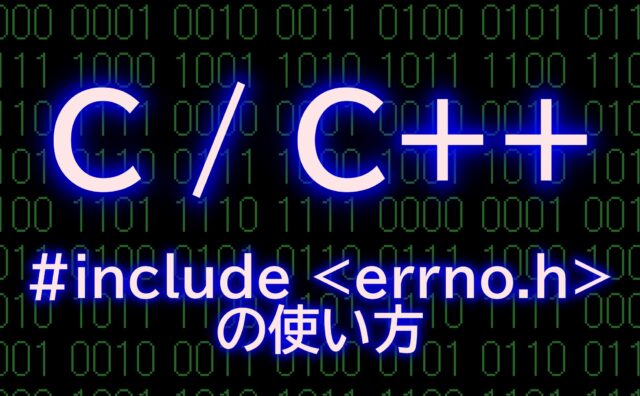


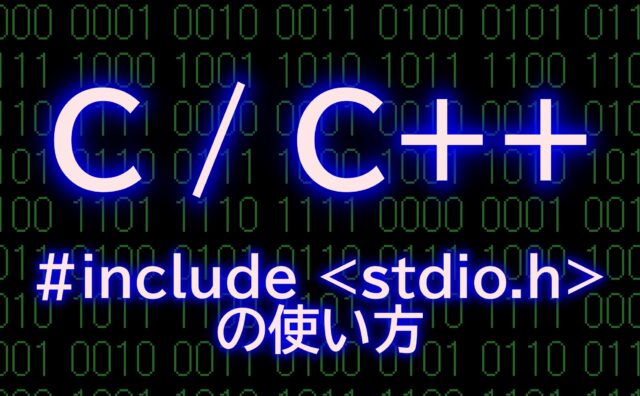







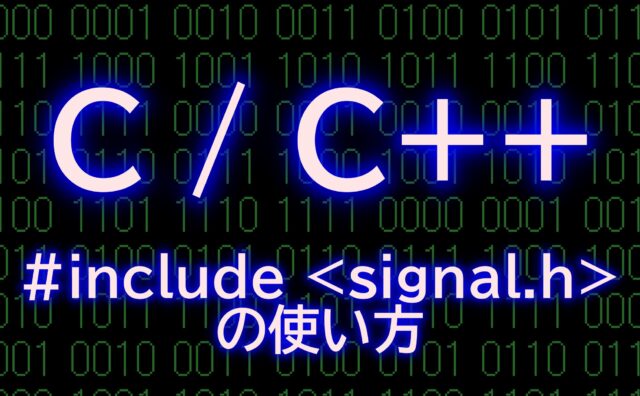

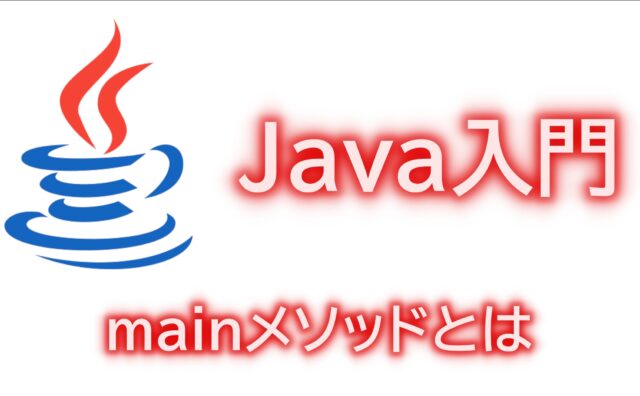
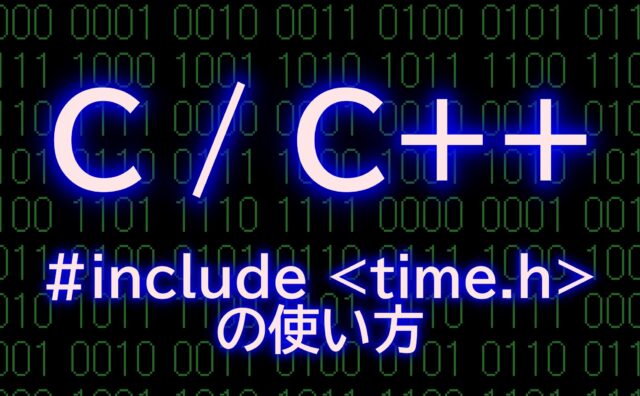
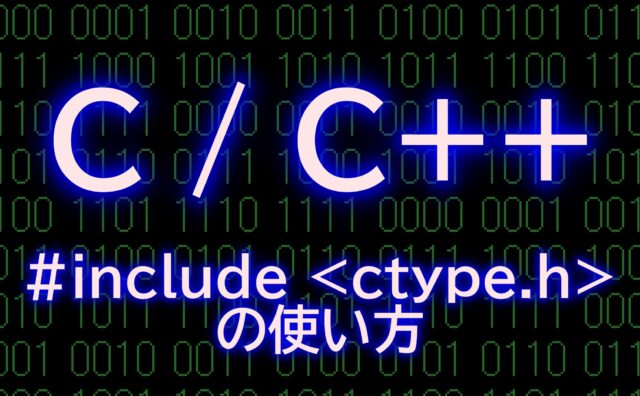




コメント